Rolling With the Punches
- Also in TR Leaf Print Edition
- January 1, 2021
- 0
- 0
- 13 minutes read
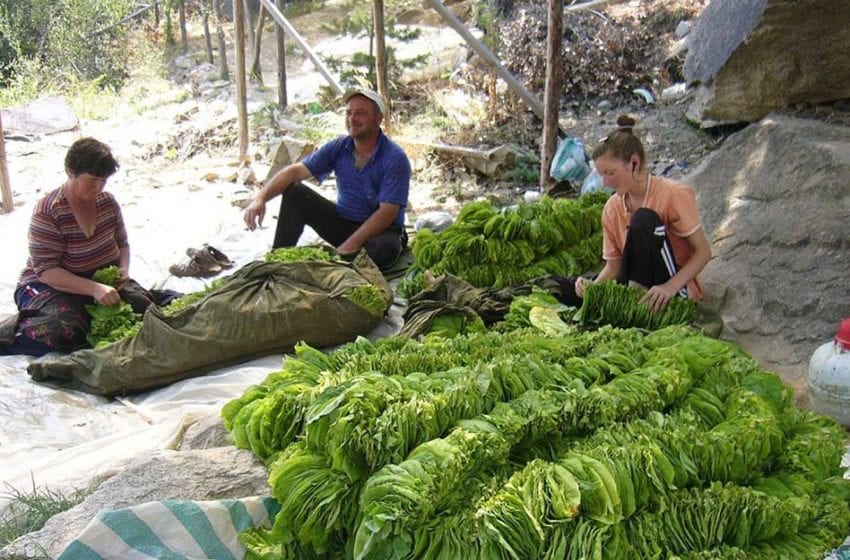
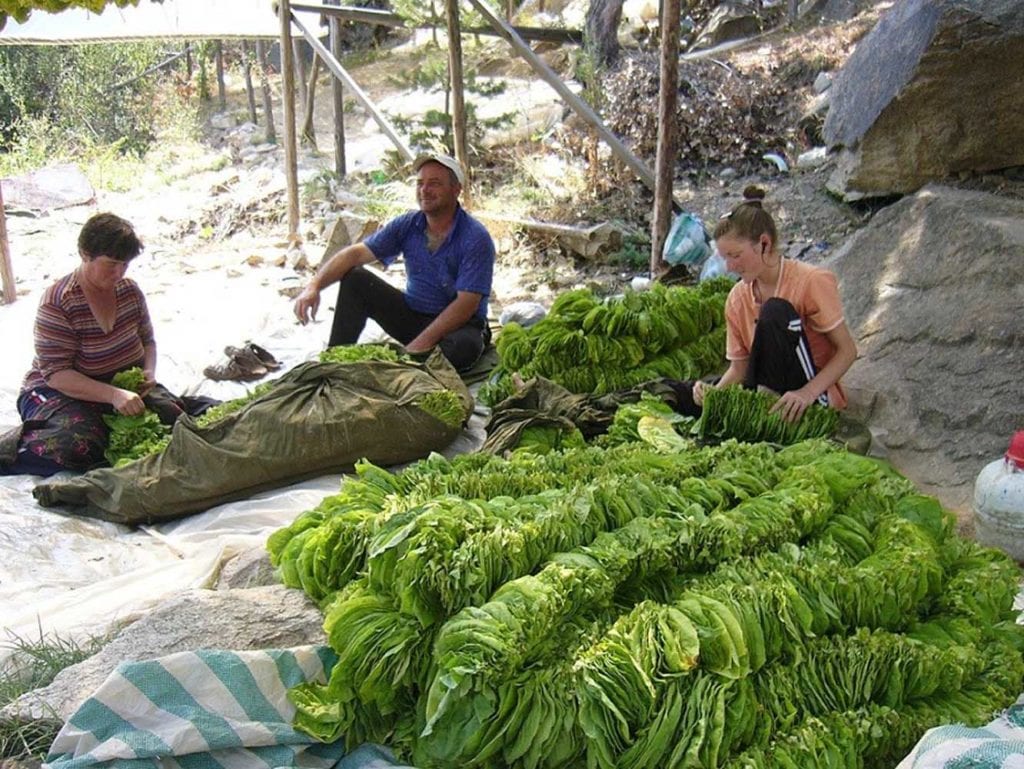
Independent leaf merchants have managed to adapt to this year’s unprecedented conditions.
By Stefanie Rossel
Although analysts have rated the tobacco industry “resilient” and “recession-proof” many times, the sector couldn’t avoid being affected by the Covid-19 pandemic. The leaf-growing segment, especially, saw disruptions, with auctions being suspended or interrupted in key markets. Travel restrictions led to shortages of agricultural inputs and seasonal workers. Growers were not allowed to be present during the sales process while international leaf dealers couldn’t attend the auctions. For many independent leaf merchants, the unparalleled situation brought about new challenges. Nonetheless, they managed to find positives in the experience.
With the 2020 Chinese New Year falling at the end of January, Kohltrade of Brazil had scheduled its business travel to start in mid-February. “Then the pandemic began, and in March, we started working from home with the factory closed for three weeks,” relates Kohltrade General Manager Hardy Kohl Jr. “During this period, we had a lot of uncertainty and insecurity about what the rest of the year would be like; how long would it take,” he continues. “After these eight months, we tried to adapt. Business trips and trade shows did not happen; we did not have buyers visiting us. We focused and invested more in remote contacts, business intelligence, video conferencing, and at the end, we will finish the year with a performance a little higher than 2019. What we think is almost good!”
Rainer Busch, managing director and owner of NewCo Global, says that despite the circumstances, business has gone well for his company. “We are fortunate to have our colleagues in the origins to be in touch with the source and factories,” he says. NewCo is present in 16 tobacco origins through marketing agreements with nonmultinational factories. “With no one able to travel to the origins and customers, I felt we were not being punished and disadvantaged,” says Busch. “There was more time for follow-up and brainstorming new ideas. For the future, I take with me that travel can be reduced. We have also invested in better virtual communication, which is very useful and saves some travel.”
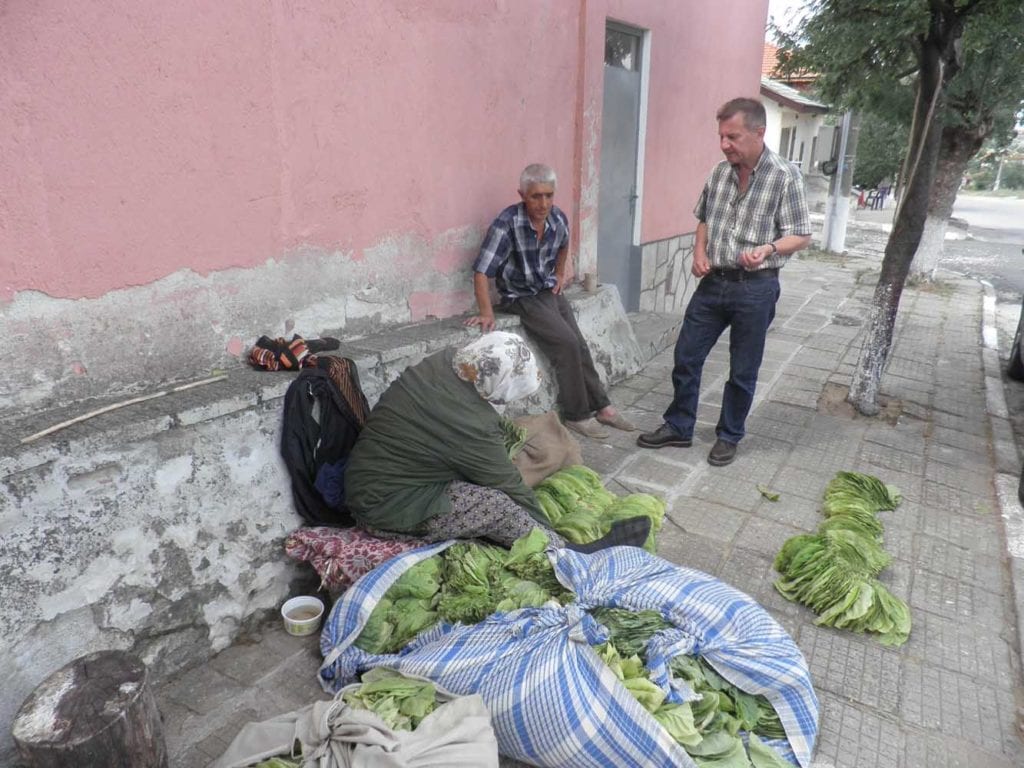

Business also continued smoothly for Nicos Gleoudis Kavex, which focuses on Greek oriental tobacco varieties, and JEB International Tobacco of Danville, Virginia, USA, which specializes in selecting, shipping, processing and storing all tobacco varieties and runs a 2,000-acre farm in North Carolina. For Austrian leaf dealer Silver Sun, which is active mostly in Bulgaria, only personal interactions remained an issue. “Our business is very much person-related, and many things cannot be communicated just over the telephone or by video conference,” says Franz Szoncsitz, director at Silver Sun. Holding a sizeable stock of tobaccos from South America, Africa, the Far East and Europe in its Bulgarian warehouses for its European customers, his company has been unaffected by the long-term storage problems that analysts had identified as a potential concern during the Covid-19 crisis. “Although we had to stay in a so-called home office for a certain time, logistics worked, and we did not face any difficulties from this side,” says Szoncsitz.
Obviously, ample storage space is helpful when vessels were delayed or rerouted. Nevertheless, logistics remain an issue. Border restrictions, along with shortages of trucks and containers, result in unpredictable freight rates, according to Busch. “Obviously, this is a serious problem for companies working with small margins as an increase in transportation costs could easily cut margins by 50 percent,” he says.
Kohl notes his company’s main problems were logistics, expensive freight and sending samples for customer evaluation. “We also had difficulties in finding space on vessels, port congestion and shipping delays,” he says. The company is working to minimize the impact on customers of such disruptions by absorbing increased costs and anticipating shipments to avoid delivery delays, among other measures. “Advance planning is essential,” he says.

Focus on the customer

Global tobacco leaf production experienced a significant decrease in 2020, declining from 5.13 billion kg of green leaf in 2019 to an estimated 4.91 billion kg in 2020. The drop impacted all tobacco varieties except dark air-cured. Analysts are slightly optimistic that production will pick up again in 2021, forecasting a crop of 4.95 billion kg of green leaf amid further challenges.
“I fully expect larger crops from all major supply origins in 2021,” says Jay Barker, founder of JEB International Tobacco. “With that said, I personally think global supply/demand is in good shape.”
According to Busch, certain types of tobacco remain in oversupply. “This year, we definitely have a surplus of high-nicotine tobacco. As a result, we lack medium-[quality] to high-quality nicotine tobacco products.” However, a shortage of tobacco could benefit companies such as NewCo, according to Busch. With access to a broad global portfolio, Newco can help customers find the right tobacco for their needs, he says.
“Due to weather conditions and labor shortages, tobaccos produced in Greece—Basma, Katerini, FCV [flue-cured Virginia] and burley—are shorter in quantity but better in quality compared to the 2019 crop,” observes Dora Gleoudis, managing director of Nicos Gleoudis Kavex. “Prilep of North Macedonia is about the same as 2019 crop quantity-wise but lower in quality. It is too early to make any prediction for the 2021 crop, but a further small decline of the tobacco production in the Balkan area is possible.”
To increase sales, suppliers should focus on the market rather than on production, according to Kohl “Our focus is to meet our customers’ demand—and, believe me, they have very different demands,” he says. “What some love, others hate, and we need to be on top of this. The major challenge in the pandemic situation is how to be close to them without the eye-to-eye contact.” Kohl expects 2021 to be even more difficult than 2020. “On the one hand, the quality seems to be better than 2020, but I expect that the worldwide economy will be in a more difficult situation,” he says. “The market in general seems to me unbalanced between supply and demand.”
Because tobacco is an agricultural product grown under natural atmospheric conditions, it is difficult to predict both the final production volume and quality at the time of transplanting, according to Szoncsitz. That means supply and demand seldom match.
“Comparing the figures some 40 years ago with the ones of the last couple of years, the amplitudes got smaller and smaller, which is a good sign in getting more stability for everybody in the chain,” he says. After losing market share to international companies, SilverSun stopped contracting with farmers. “As a small dealer, the global decrease or increase of leaf production does not significantly affect us,” says Szoncsitz.
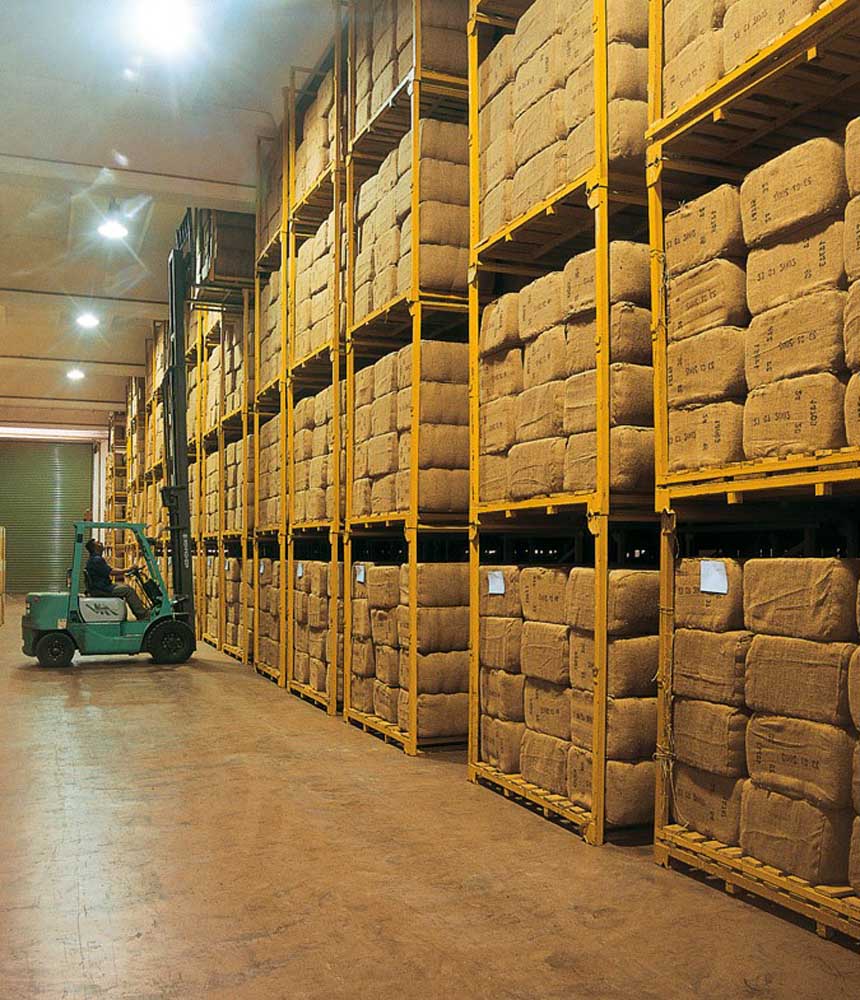
Uncertain times
More detrimental than the tobacco surplus has been the continuing decline in cigarette consumption. For leaf merchants, it can be difficult to discern the annual requirements of their customers. “On the other hand, dealers are signing early each year cultivation contracts with their farmers,” says Gleoudis. “We feel it is unfair what happens lately: customers undertaking commitments toward their dealers much later—i.e., at a time when dealers have already undertaken their obligations towards their growers. This policy can create uncommitted stocks as well as financial difficulties to the dealers.”
“In my opinion, the biggest issues we are facing as leaf dealers are the cigarette consumption decline and the consolidation of manufacturers,” says Barker. “It’s a double whammy that directly affects a leaf dealers’ bottom line. The only way to survive is [to] tighten your belt and deliver superior product and customer service.”
Given the developments in the tobacco landscape in recent years and the long-term economic effects of the Covid-19 pandemic, the future remains uncertain.
The key, according to Kohl, is knowing how to deal with competition, the restrictions on face-to-face contacts and reduced margins. “There was euphoria in 2020 after the end of the lockdowns to meet the repressed demands and logistic difficulties of this period,” he says. “Now we see that we have second, third and who knows how many waves of infection coming. Governments will have to pay the bill for emergency support, and this bill will come due in 2021. How long will it take to get a vaccine? How efficient will it be? What will the world unemployment numbers be at the end of this? Those questions are still open.”
Busch is more confident. “Consumption is likely to increase during the pandemic, which is a positive aspect,” he says. “Consumption may change from normal cigarettes to making or rolling your own products; the home office will have its effect. Less tourism means fewer cigarette purchases in duty-free shops and fewer takeaways from tourist countries where cigarettes are cheaper. Thankfully, our industry in general is one of the industries less affected and damaged by the pandemic.”
Unforeseen opportunity
Could a pandemic also have a positive side? John Wallace, principal at Leaf Only, would say so. Established in 2009 and based in Connecticut, USA, his company has chosen a different business model of supplying raw tobacco: The company caters to both the wholesale and retail leaf market, supplying a large variety of tobacco leaves, including cigar wrappers, binders and fillers as well as unprocessed cigarette tobacco and pipe and hookah tobacco.
“It was really strange, actually,” says Wallace, referring to when the coronavirus broke out. “In April, May, June and July, we saw record sales—even to the point where we could not fulfill orders due to lack of staff. It was as if our business nearly doubled in a matter of a few weeks. Since then, it has leveled off, and we are almost back to normal, but it was definitely a wild ride! If I had to guess, I think people might have been panic buying for whatever reason. Thinking things would be harder to obtain or that prices would go up dramatically? Not too sure.”
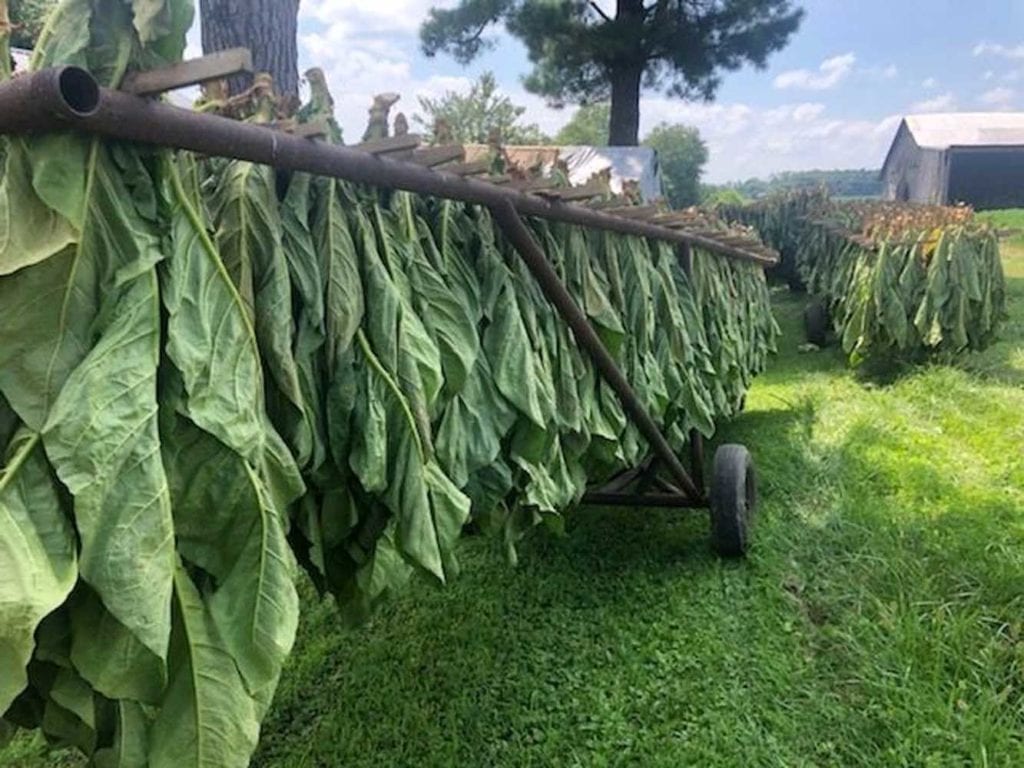
Importing leaf from certain countries had been challenging, however. “In some cases, it still is,” says Wallace. “We’ve been waiting on a container from India since June, for example. It is finally supposed to arrive in the next couple of weeks, but it should never take so long. As far as I know, most of the delay was due to Covid-19 restrictions and issues with various countries and shipping agencies. Sourcing here in the USA has remained unphased, which is really great for us since that is most of what we sell.”
For 2021, he forecasts a return to a more steady and predictable business. “I think it now more depends on the growing season, leaf quality and the overall market economics rather than outside factors such as Covid-19. Hopefully, it ends up being a good year.” —S.R.
